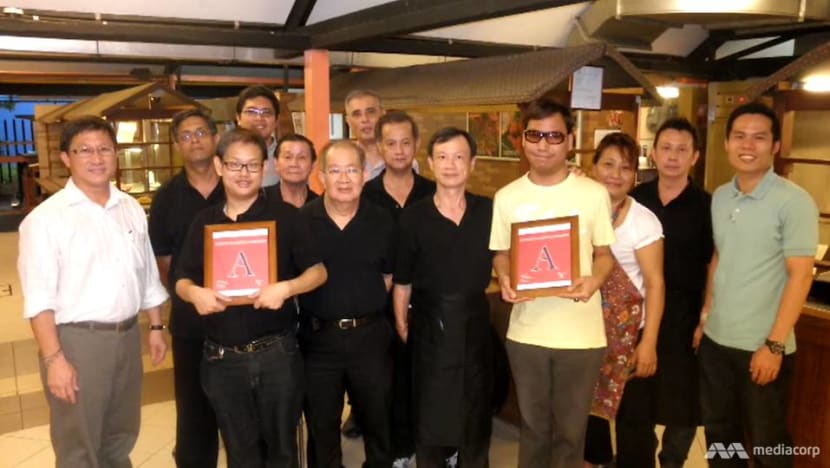Money lost, a life claimed by suicide, but Dignity Kitchen’s founder never gave up
There have been obstacles along the way, from naysayers to a lack of government funding to a forced relocation, but social entrepreneur Koh Seng Choon is still going strong.
SINGAPORE: As a successful social entrepreneur, Mr Koh Seng Choon has many things to be proud of.
Among other initiatives, he created Asia’s first community food court managed by people with disabilities, and a second-hand bookshop concept run by youngsters with special needs and their mothers.
His social enterprise Project Dignity won the President’s Challenge Award in 2015.
But for all the accolades, one incident weighs heavily on him: The death of a woman he had trained and placed in a sticker-making factory. The 20-year-old had bipolar disorder.
“People (when depressed) don’t talk, and they keep (everything) inside … One day, on a Monday afternoon, at 3.30pm, she went home. From the sixth floor of her building, she jumped,” he recounted.
“That was the biggest mistake I’ve ever made.”
He later found out, from watching CCTV footage from the factory floor, that she had been affected by a supervisor who had engaged in nitpicking and shouting at her.
After that, Mr Koh expanded his team so that there would be no lack of focus on individuals.
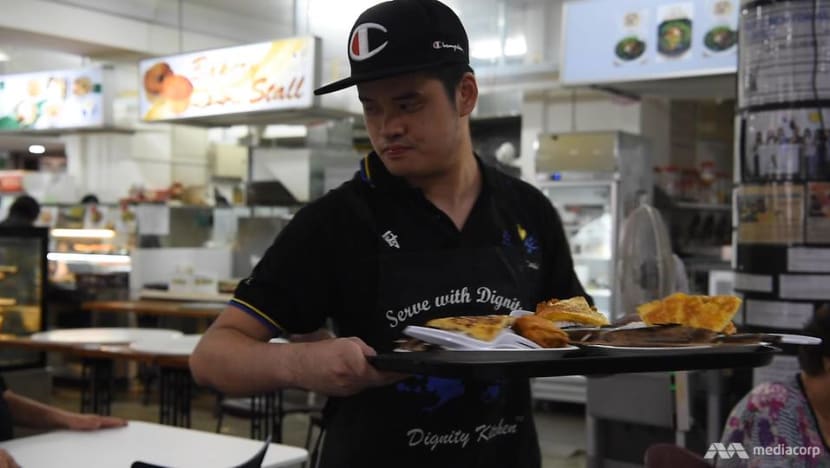
As the 59-year-old tells the programme Money Mind, there have been tribulations, setbacks and hurdles in his journey to establish a social enterprise that helps people who feel that they have lost their sense of dignity. (Watch the episode here.)
READ: Remember those who can’t be number one: On the Record with Dignity Kitchen's Koh Seng Choon
STARTING ONE DAY A MONTH
With a degree from the United Kingdom, this trained engineer was working in Europe, China and the United States before returning to Singapore to start a consultancy.
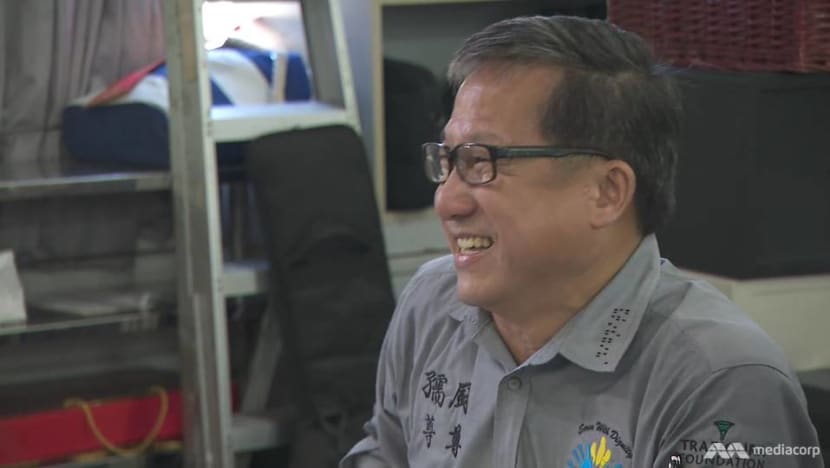
Driven by a desire to help people with disabilities and the socially disadvantaged, he started community volunteering.
“My thought was that if I could make rich people very rich, why don’t I help the poor people to have a better life?” he said. “I thought that one day a month, I’d do something good.”
He termed it Dignity Day, when he would hire a bus to take the elderly on day tours. He did this for about seven years, and it went from a four-person tour to two busloads.
Next, he taught youngsters in a remand prison, and then advised inmates at a drug rehabilitation centre how to start a business.
In 2006, he decided to do more, with the idea of a food court where he could help to train and employ people with disabilities and social disadvantages.
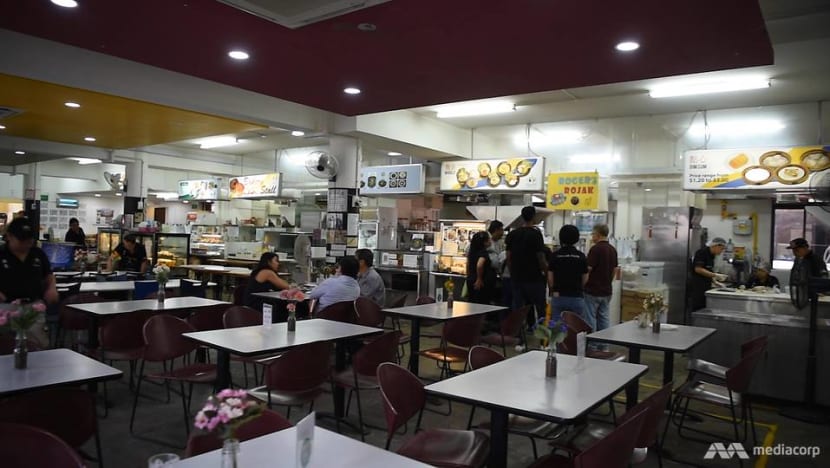
“If I want to help these people, I must skill them. Cooking is a skill … If I can train them, they must go out and earn proper money,” he explained.
He sought funding from various government agencies, but that did not work out. So he set out to find people who would help him with his social enterprise.
“I went to a lot of people, famous hawkers … They said it wasn’t possible, (that) trying to train normal people to run a food court was already very tough, (let alone) people with (disabilities),” he recalled.
“A lot of people rejected me.”
WATCH: Pressing on, despite naysayers (Dur 3:59)
LOSING $1,000 EVERY DAY
When he knew he could not rely on others for financing, he re-mortgaged his office property, raising S$200,000 to build the first Dignity Kitchen at Balestier Market Food Centre — in 2010, four years after he had conceived the idea.
It had four stalls selling nasi lemak, vegetarian food and local desserts, and although he was unfamiliar with the food business, his passion pushed him on. But the losses were heavy.
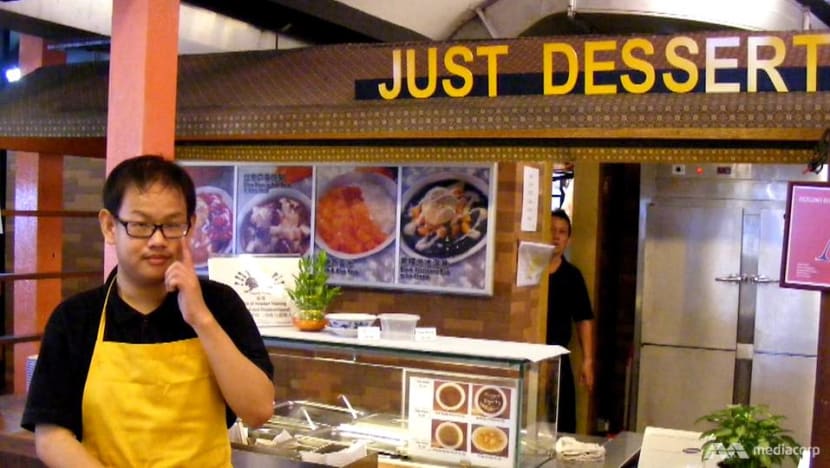
“The first and second year, I lost a total of S$700,000 ... I was losing S$1,000 a day. That was very stressful and very tough,” he said. “You know, I had two sons studying.”
He tried asking for help and, to his disappointment, found little support again. “Even my friend didn’t want to answer my telephone call because (I was) doing something that nobody believed could be done,” he said.
Mr Koh eventually received help from his family to tide him over. He also stumbled on the reason he was sustaining losses.
He had initially thought it would be a good idea to have the staff, including those with mental health issues or visual impairment, to wear badges identifying their disability so that customers would be understanding.
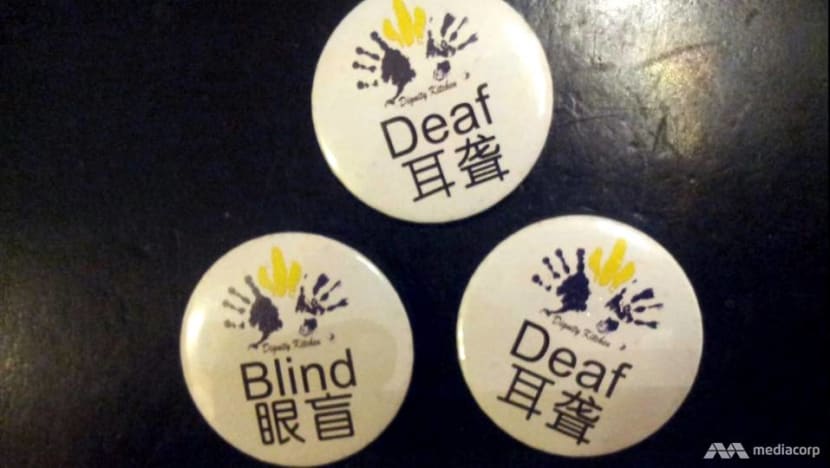
“I was a bit idealistic. I thought everybody would buy (food) from disabled people … Nobody bought. Everybody (who) came and saw the word ‘mental’ (on some badges) walked away,” he said.
He recounted what one man told him in Hokkien: “You must be mental to get mental people to sell. Aren’t you worried mental people would put dirty things in (the food)?”
A lack of empathy among some people, he realised, was the biggest challenge. It meant lots of leftovers that he had to pack home, give to friends or throw away.
“One night … the cleaner said, ‘Cannot throw food away’, so I decided to go to the toilet and, for the first time in my life, I flushed three kilogammes of nasi lemak down the toilet,” he added.
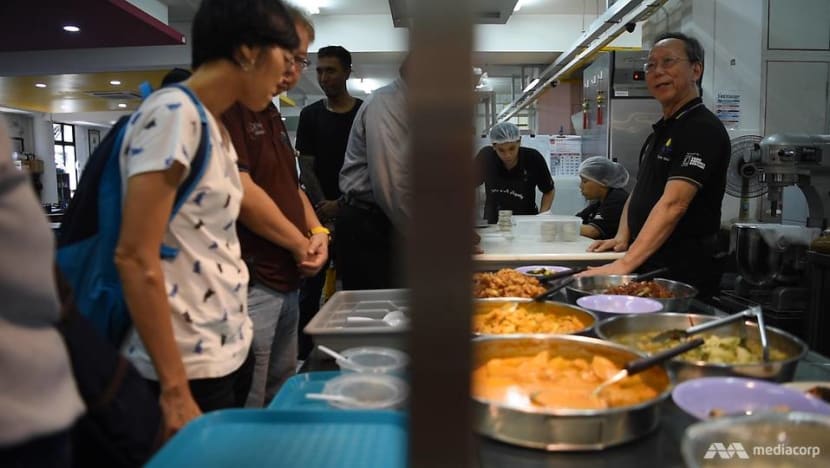
The loss-making venture turned round only after his staff took off their badges. And the stalls were soon bringing in S$20,000 monthly.
DIGNITY MAMA
When the lease expired, Dignity Kitchen moved to Kaki Bukit. After a few years, however, rental increases forced it to relocate to Serangoon Avenue 3, where it is today a sustainable social enterprise, although high rents remain a challenge.
“After 10 years now, things are better. People are more receptive,” said Mr Koh. “We try to have more events and engage people more.”
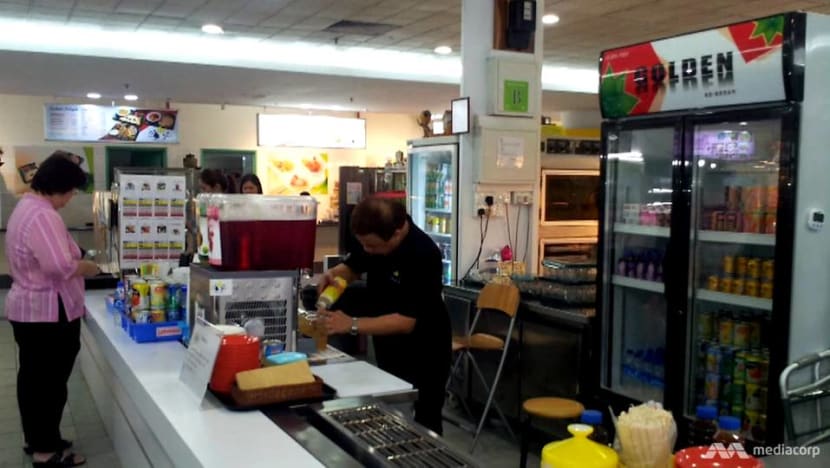
Dignity Kitchen, which employs more than 60 people, generates revenue from its food court, catering services, event hosting, consultancy services and training.
“We aren’t an organisation that cooks food and gives to the disabled … We want (them) to go out and get a job. It’s training,” Mr Koh added.
“Once they’re out working … we’re not (only) helping the individual, we’re helping the family and the extended family.”
When he realised that not everyone can be trained to do hawker work, he started Dignity Mama, which employs youth with disabilities — such as Down’s syndrome — and their mothers to sell second-hand books in local hospitals.
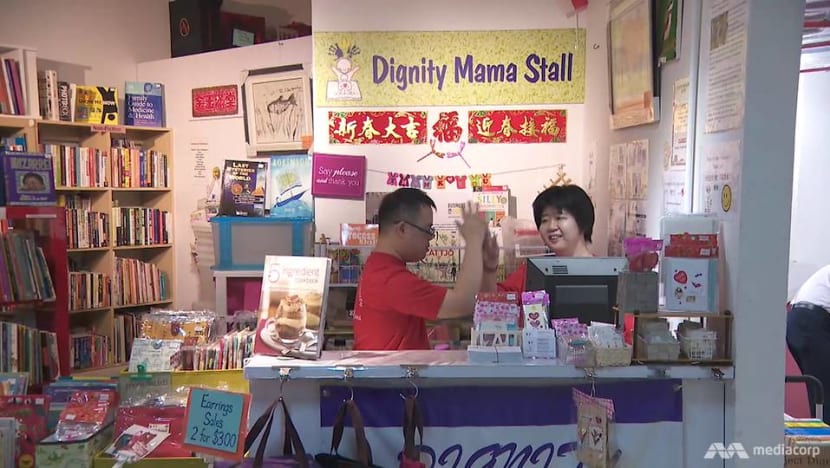
The idea is for these young adults to gain basic entrepreneurial skills, and to keep their carers employed. Initially, however, the hospitals were lukewarm to the idea.
“We wrote to a lot of people,” said Mr Koh. “Nobody would give (us) a site.”
But after Project Dignity was featured in a local show, the hospitals offered them space. There are now three Dignity Mama shops, which employ 26 people in all, with a fourth to start soon.
Mr Koh is now looking at expanding the Dignity Kitchen concept overseas; for example, he believes the Singapore model can work in Hong Kong.
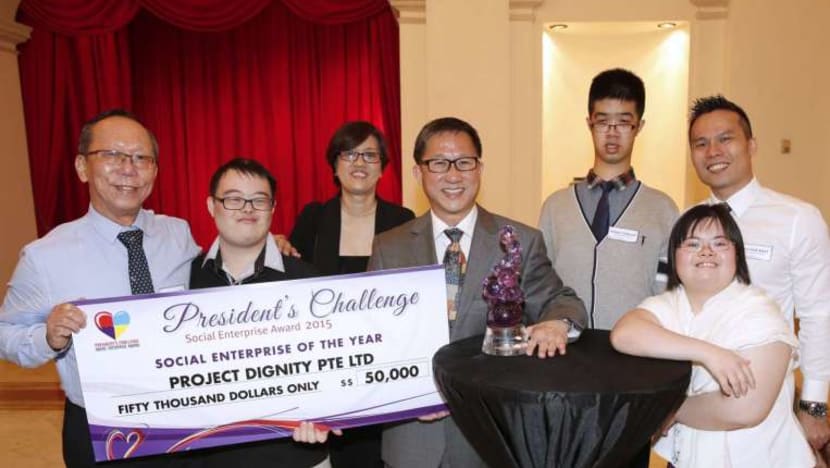
It has been a long road he has travelled since he kicked off his social enterprise project. While he has met his fair share of naysayers, he has never been discouraged nor distracted by them.
It boils down to self-belief and passion for the cause. “It’s not a project I can walk away from,” he said. “If I walk away, my people would be out of a job.”
This social enterprise, he added, “is a need, not a want”, as those with disabilities “need to earn money” to support themselves. “People want to work. People want to have a life. And that’s why I’ve kept going.”
Watch this episode of Money Mind here. New episodes every Saturday at 10.30pm.
